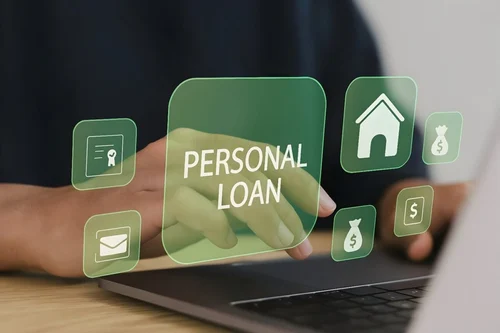At present, digital loans are almost normal. The complete loan process is online for numerous customers nowadays. The electronic signing of the loan contract on a mobile or computer is included in this process. However, one major concern is that most of the borrowers still think: Are electronically signed loan contracts valid in court?
This guide will give you the answer. We explain how digital signatures work, why they are legally accepted, and how to stay safe while using them. Apps like Olyv also help you sign documents securely so you can complete your loan process with confidence.
Why Digital Signing Matters Today
Digital signing saves a lot of time. You are not required to go to the bank. The whole process of your loan can be done in just a few minutes. But many people worry about whether digitally signed loan agreements are strong enough if any issue goes to court.
However, the bright side is that there are well-defined regulations in India when it comes to digital signatures. These regulations not only protect the rights of the borrowers and the lenders but also guarantee the legal standing of e-sign loan agreements throughout legal disagreements.
Why Borrowers Prefer Digital Signatures
| Benefit | Reason |
| Fast process | Sign in seconds using mobile OTP |
| Secure | Encrypted and tamper-proof |
| Legal | Protected under the IT Act 2000 |
| Convenient | No branch visit needed |
| Trackable | Easy to verify anytime |
Are Digitally Signed Agreements Legal?
In India, loan agreements that have been digitally signed are considered to be legal documents. The Information Technology Act, 2000, has fully endorsed them.
This Act clearly states that digital signatures are valid and enforceable in court. So whenever you wonder are digital signatures are valid in court, the answer is yes, as long as proper signing methods are used.
The two most common valid methods are,
Aadhaar e-Sign
- Utilizes OTP
- Easy to use
- Accepted for all kinds of personal loans
Digital Signature Certificate (DSC)
- Given by a government-accredited authority
- Secured to the maximum extent
- Mostly applied for business loans
Both are trusted. Both support the court’s acceptance of digital signatures.
How Courts Verify Digital Signatures
Courts consider digital signatures differently from paper signatures. They would rather examine,
- Date and time of signing
- Details of encryption
- Signature certificate
- IP address (in some situations)
This makes digitally signed loan agreements even more secure than paper documents.
The judge can verify if the signature is real and whether the document was changed later. This ensures the legality of e-sign loan agreements whenever disputes happen.
Paper Signature vs Digital Signature in Court
| Feature | Paper Signature | Digital Signature |
| Can it be forged? | Yes | Very hard |
| Easy to verify? | No | Yes |
| Tamper detection | Difficult | Automatic |
| Court acceptance | Yes | Yes |
| Security | Medium | Very high |
How to Safely Use Digital Signatures for Loans
Here are simple rules,
Sign only on trusted platforms
Avoid unknown websites. Use verified apps.
Never share your OTP
Your Aadhaar OTP is private.
Read the agreement
Check every point before signing.
Save your copy
Always keep a PDF copy of the digitally signed loan agreements.
These steps help you avoid problems and support the legality of e-sign loan agreements if any dispute arises.
Conclusion
Yes. Digitally signed loan agreements are 100% valid in Indian courts. They are protected by law, backed by encryption, and easy to verify. Courts trust them because they offer strong proof and clear records.
So if you ever worry about whether your digital signatures are valid in court, you can relax. Digital signing is safe, legal, and reliable.
And with secure platforms like olyv, the whole process becomes even easier and more trustworthy.



